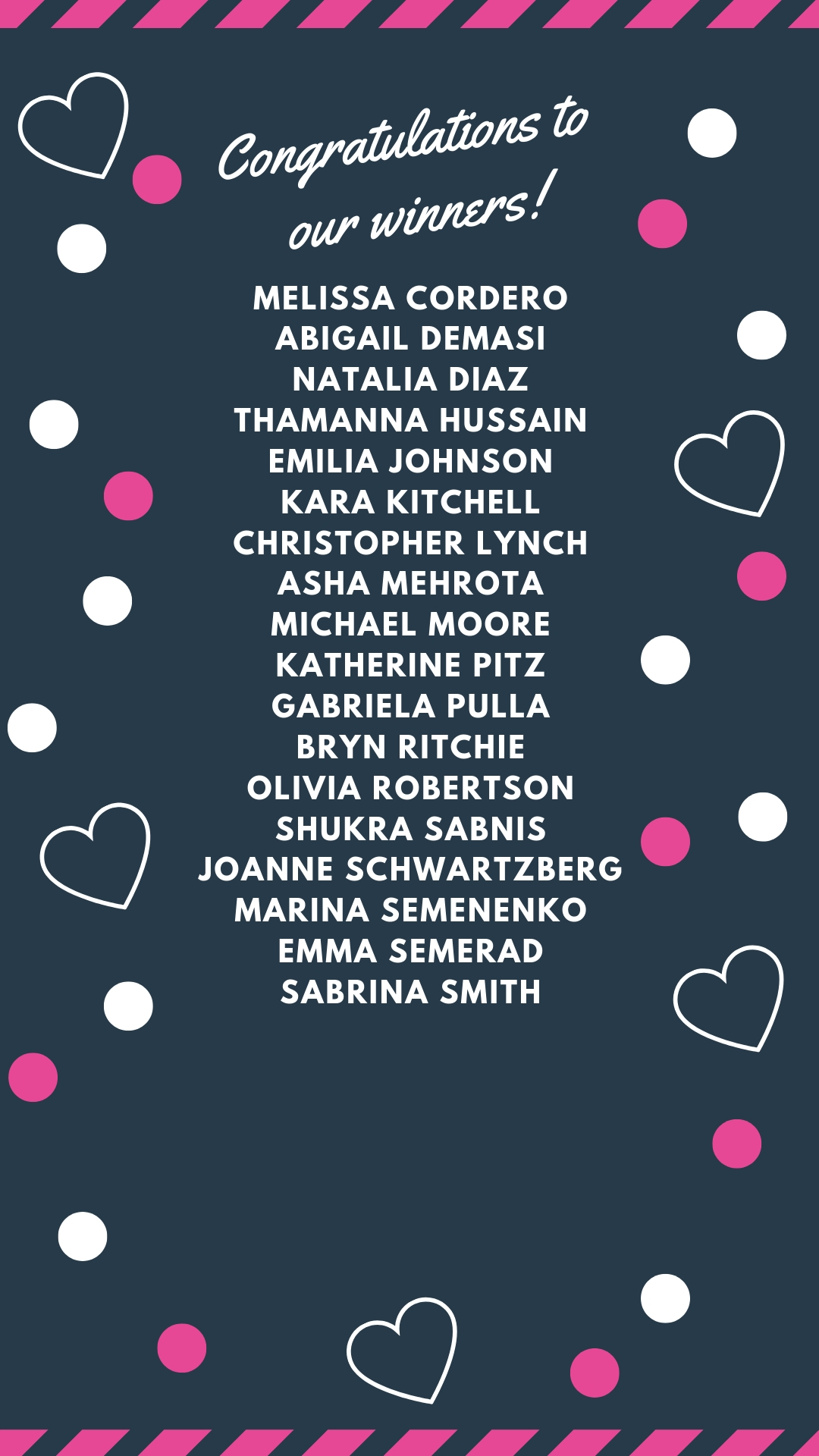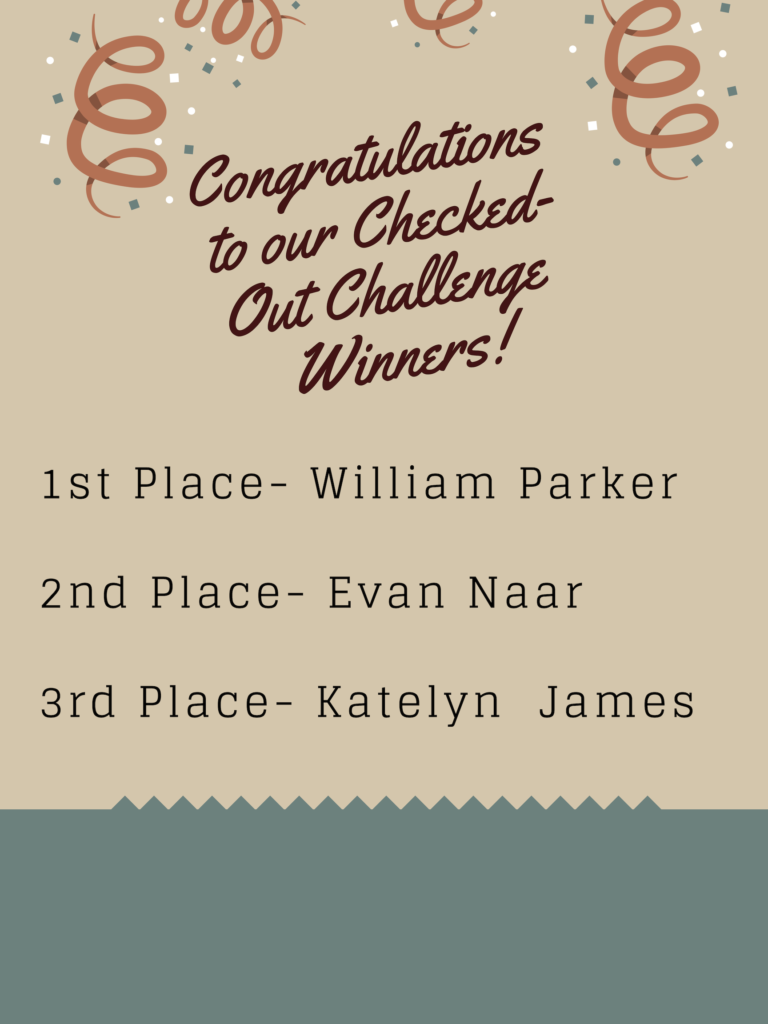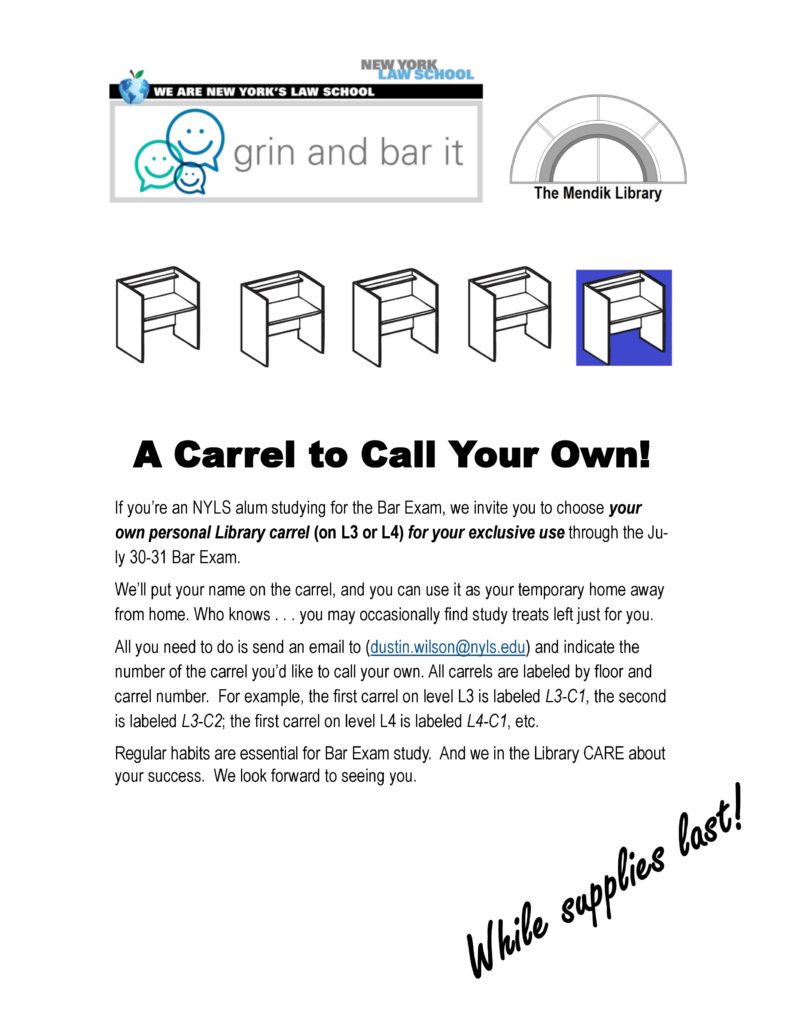
Author: dustinkwilson
2019 Summer Research Challenge
The Challenge is On!
Join us Wednesday June 5 (and on any or all of the following Wednesdays through June 26), for the Mendik Library’s 2019 Summer Research Challenge! Hone your research skills with real issues you’ll encounter in practice and have some fun at the same time. Get all the details here and follow this link to register.
Exam Prep Help!
The Library wants to help!! Here are three important tips as you prepare for upcoming exams:
· Visit the Library’s Exam Preparation Resources page for lots of sources containing practical advice and strategies.
· Visit our archive of previous years’ exams, organized by course name and professor, found under Student Resources on the NYLS Portal.
· Try some CALI lessons, interactive tutorials covering almost all law school subjects. CALI also offers a variety of lessons and podcasts with exam tips and advice from faculty, including Top 10 Tips for Successfully Writing a Law School Essay and Tips for Multiple Choice Exams in Law School. If you haven’t registered for CALI, contact the Reference Desk (reference@nyls.edu) for the access code or pick up a CALI card at the Reference Desk.
CALI also wants to help you “tune out the noise,” with their complimentary earplugs. Grab a pair (a pair) at the Reference Desk.
Celebrate Law Day 2019
Each year on May 1st, the United States celebrates Law Day. First designated in 1958 by President Eisenhower, Law Day celebrates the rule of law and its contributions to Americans’ many freedoms. This year’s theme is Free Speech, Free Press, Free Society, which “focuses on these cornerstones of representative government and calls on us to understand and protect these rights to ensure, as the U.S. Constitution proposes, ‘the blessings of liberty for ourselves and our posterity.’”
The Law Library of Congress has a Law Day Research Guide, with links to legislative and executive documents as well as books, journal articles and speech transcripts. Additional information on Law Day and materials relating to this year’s theme are on the ABA’s Law Day web page.
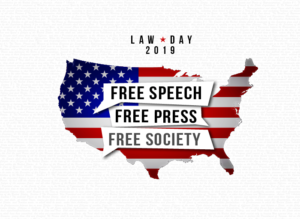
Celebrate Earth Day!
Monday April 22, 2019 is Earth Day.
This year’s Earth Day Network campaign is Protect Our Species, which aims to educate and raise awareness about the accelerating rate of extinction of millions of species. It also seeks to build a global movement that embraces nature and its values and to achieve major policy victories that protect broad groups of species as well as individual species and their habitats.
Visit Earth Day Network’s website to learn more about this and other Earth Day campaigns and efforts.
The Mendik librarians will again honor Earth Day by contributing $2.00 to the Earth Day Network for every spill-proof mug purchased at the Circulation Desk through the end of the semester. Mugs are available for just $5.00.
Selecting Your Courses for Next Year: Why You Should Consider Legal Research
Selecting Your Courses for Next Year: Why You Should Consider Legal Research
Among the most important skills all lawyers rely upon is the ability to do legal research—to find what’s needed to interpret and analyze legal issues. Legal research is an integral part of the “competencies” that NYLS and the ABA require of law students. Effective research skills are vital to students engaged in any type of legal writing, to those who are clerking or participating in externships, and to those entering legal practice.
To help you prepare for the realities of law practice, we offer a number of courses that build upon skills learned in the first year and will make you a more efficient, confident and successful researcher.
Legal Research: Practical Skills (1 credit)
Builds on fundamental research skills through refining students’ techniques, introducing shortcuts and new approaches, and developing effective strategies. The course focuses on finding legislation, administrative materials, and related cases; using the secondary sources relied on by practitioners; attaining greater proficiency and comfort with Lexis, Westlaw, Bloomberg Law, and other online research tools, including reliable free and low-cost sources. We also offer this class with a focus on a particular substantive practice area, including Corporate & Business Law; Criminal Law; Family Law; Foreign and International Law; Intellectual Property Law; Labor and Employment Law; and Real Estate Law.
Legal Research: Skills for the Digital World (3 credits)
Continues to build on the fundamentals described in Legal Research: Practical Skills. Students concentrate on more advanced techniques and strategies and learn to evaluate online and print materials in order to choose the best and most cost effective source for particular projects. Some assignments are geared to students’ individual subject interests. Take-home assignments test and enhance students’ ability to perform various research tasks and strengthen their understanding of important research process and strategy considerations.
Want more information? Contact Prof. Michael Roffer
Meet Peggy!
March is Women’s History Month. So introduce yourself to Peggy, the Women and the Law database available on HeinOnline. It brings together books, biographies and periodicals dedicated to the role of women in society and the law. You can access it from the HeinOnline home page. In addition, the Library of Congress has a dedicated web page for Women’s History Month, including information about events, ceremonies, and celebrations.
The Green Book
The Green Book: Travel is Fatal to Prejudice
Green Book, this year’s Oscar winner for Best Picture, was loosely based on the true story of a friendship between an African-American concert pianist, Dr. Don Shirley, and his Italian-American driver and bodyguard, Tony “Lip” Vallelonga—a friendship that developed on the road during a concert tour through the “Deep South” in the 1960s.
While the story is moving and the acting superb, the movie and its audiences might have been better served if its eponymous inspiration had been given a more prominent role. Few people recognize the film’s title as a cinematic nod to the Negro Motorist Green Book—an indispensable ready reference source that many African-American travelers and motorists relied upon during the Jim Crow era.
The film is set in 1962—more than a quarter of a century after the “Green Book” was first published by Victor Hugo Green, a New Jersey mail carrier living in Harlem. The Green Book, which was updated annually, contained travel tips, articles, and listings of hotels and other lodging, restaurants, nightclubs, gas stations, garages, salons, barbershops, and other businesses and establishments where African-Americans were known to be welcomed and served.
The Green Book provided a measure of protective reassurance and was designed to avoid or mitigate “embarrassing situations,” as Green himself put it, while also affording subtle commentary on the racial and social injustices of the time. For example, the same 1949 cover that cautions its readers to “Carry your Green Book with you—You may need it” also displays “Travel is Fatal to Prejudice,” a quote from Mark Twain’s Innocents Abroad.
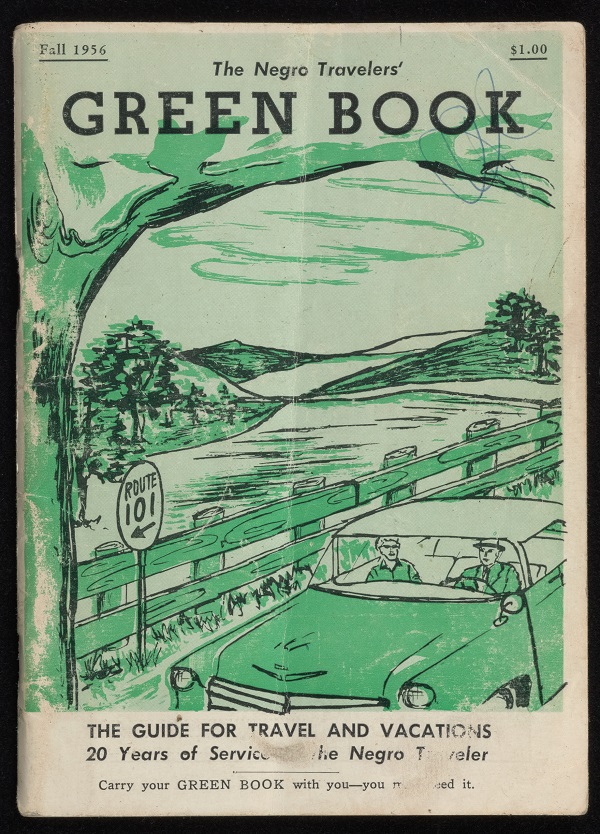
You can access digital versions of one of the largest collections of Green Books here, courtesy of the New York Public Library’s Schomburg Center for Research in Black Culture.
Congratulations to our Valentine’s Day Info Hunt Winners!
Thanks to everyone who participated in this year’s Valentine’s Day Info Hunt!
We want to thank ALL of you for putting your research skills to work and joining us in what we hope you all found to be a great learning experience. Here are the 18 winners drawn from our renowned Raffle Drum:
